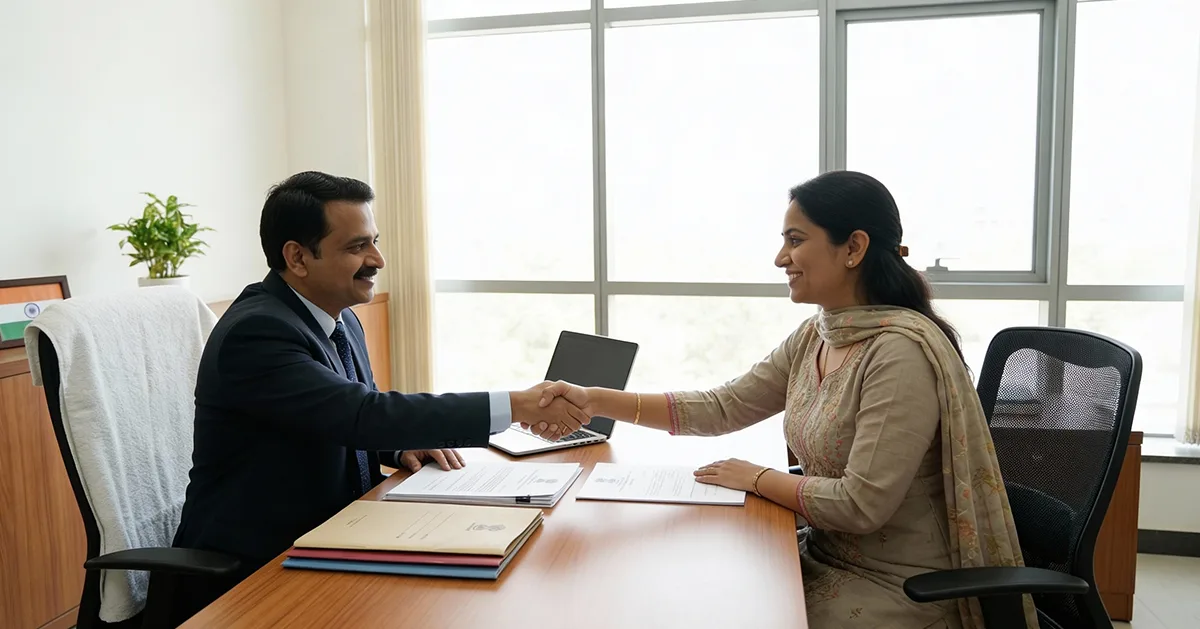
Overview of the Security Service Business in India
The Security Service Business in India has witnessed rapid growth over the past few years. With the rise in crime rates, concerns over safety, and an increasing need for safety measures in both residential and commercial spaces, the demand for Security services is soaring.
India’s Security industry is diverse, ranging from guarding services for residential, commercial, and industrial sectors to advanced Private Security technologies like cybersecurity and surveillance systems. According to recent statistics, the Security Service Business in India is expected to grow at a compound annual growth rate (CAGR) of 20% in the coming years, making it an attractive business opportunity.
Market Potential and Growth Opportunities
The growth of the Security Service Business in India is primarily driven by:
- Increased Need for Safety: With a rise in crime, especially in urban areas, businesses, institutions, and homeowners are seeking professional Private Security services.
- Expansion of Businesses and Malls: Commercial sectors, including malls, event venues, and office spaces, are increasingly outsourcing Security services.
- Technological Advancements: Security agencies are now integrating surveillance systems, drones, and cybersecurity services.
- Government Regulations: The implementation of stringent safety regulations across industries is creating a greater demand for licensed Private Security services.
Types of Security Services
The Security Service Business in India can cater to various sectors, each requiring unique Security solutions. The most common types of Security services offered in India include:
- Guarding (Residential, Commercial, Industrial)
Providing trained Security personnel to protect residential complexes, commercial offices, factories, and other properties. - Event Security
Offering Security for events like weddings, concerts, corporate functions, and public gatherings. - Cybersecurity Services
Protection against online threats such as hacking, phishing, and cyber-attacks for businesses and individuals. - Surveillance & Monitoring Services
This includes CCTV surveillance, alarm systems, and remote monitoring for clients. - Private Investigation Services
Offering investigation services, including background checks, surveillance, and more.

Legal Requirements and Registrations
To operate a Security Service Business in India, it is important to comply with legal and regulatory requirements. Below are the key Licensing requirements and registrations you will need:
- Private Security Agencies (Regulation) Act, 2005 (PSARA) License
The PSARA license is a mandatory requirement for any Private Security service provider in India. It regulates the functioning of Private Security agencies and ensures they operate ethically and legally. - Business Entity Registration
Registering your Business in India is essential. You can choose from the following business structures:
- Sole Proprietorship
- Partnership
- Private Limited Company
- Sole Proprietorship
- GST Registration
If your turnover exceeds the prescribed limit, you must register for GST. This is crucial for businesses that intend to operate on a large scale. - Shops & Establishment Act Registration
This registration is required for businesses employing staff, ensuring compliance with labor laws. - Employees Provident Fund (EPF) and Employee State Insurance (ESI) Registration
If your Security Service Business in India has 20 or more employees, EPF and ESI registrations are mandatory. - Labour Law Compliance
As an employer in the Security Service Business in India, you need to comply with labor laws, including wage standards, working hours, and other statutory obligations.
Step-by-Step Process to Start a Security Service Business in India
Starting a Security Service Business in India requires careful planning and adherence to legal regulations. This section outlines the essential steps from business planning to launching your services successfully.
Before starting your Security Service Business in India, conduct thorough market research to understand the demand in your area. Assess the competition and identify your target audience. A well-structured business plan will guide your operations, financing, and marketing strategies.
Pro Tip: If you need assistance with market research or business planning, RegisterKaro can help you get started.
The next step is selecting a suitable business structure based on the size and scope of your operations. A Private Limited Company offers limited liability protection and is a preferred choice for Security Service Business in India aiming for scalability.
For assistance with registering your Private Security business, Contact us at RegisterKaro.
Once you’ve decided on the business structure, you’ll need to register your business with the Ministry of Corporate Affairs (MCA) and apply for the necessary licenses.
- PSARA License Application: This is the primary Licensing requirement for operating as a Private Security agency in India. The application process involves submitting required documents, undergoing police verification, and meeting other criteria.
- Business Entity Registration: Depending on the chosen structure, register your business either as a sole proprietorship, partnership, or Private Limited Company.
A well-trained team is the backbone of any Security Service Business in India. Ensure that your Private Security personnel are well-versed in security protocols, customer service, and emergency response.
Pro Tip: Adhere to the PSARA guidelines regarding hiring and training standards.
Investing in essential Security equipment like CCTV cameras, alarm systems, fire safety equipment, and communication devices is critical. Ensure that you use advanced and reliable technology to provide the best Private Security services to your clients.
Develop a robust marketing plan to reach potential clients. You can use a combination of online and offline strategies to promote your services, including digital marketing, social media, and partnerships with businesses and government agencies.
PSARA License: Application Process & Requirements
The PSARA license is mandatory for all Private Security agencies in India. Here, we will walk you through the application process and key requirements for obtaining this crucial license.
To apply for the PSARA license for your Security Service Business in India, you must meet the following criteria:
- The agency should be a legally registered entity (Private Security companies are preferred).
- The agency must have at least one director or partner who meets the required eligibility standards.
- The Private Security personnel should undergo proper training as prescribed by the PSARA guidelines.
Some of the essential documents include:
- Business registration certificate
- Identity and address proof of the directors
- Proof of security training facility
- Police verification of directors and employees
- A statement of the business’ operations
The application can be filed online through the official PSARA portal. After submission, the concerned authorities will process the application and may conduct a background check.
The PSARA license is valid for 5 years and must be renewed before expiration.
Investment and Financial Planning
Understanding the capital requirements and planning your finances is crucial for the success of your Security Service Business in India. In this section, we explore investment estimates and funding options.
Starting a Security Service Business requires a significant initial investment. This includes costs for equipment, licenses, marketing, and employee training. The capital requirement may vary based on the scale of operations.
You can obtain funding through personal savings, bank loans, or government schemes designed for small businesses. Private investors and venture capitalists may additionally be potential sources of funding.
Your primary operational costs will include salaries, equipment maintenance, office expenses, and marketing. Establish a competitive pricing strategy based on market demand and competitor rates.
Staffing & Training Requirements
Hiring well-trained security personnel is vital to the success of your business. This section covers staffing needs, training standards, and the importance of compliance with industry regulations.
Hiring skilled Private Security personnel is vital. Ensure that your employees undergo training as per PSARA and National Skill Development Corporation (NSDC) standards.
Carry out thorough background checks on your staff to ensure compliance with legal and Security regulations.
Essential Equipment & Technology
The right Security equipment and technology are essential for providing quality service. This section highlights the key tools and systems you need, from surveillance cameras to communication devices.
Modern surveillance systems are a must-have for any Security Service Business in India. Consider installing high-definition CCTV systems to ensure effective monitoring.
Invest in Security alarms and advanced access control systems to offer comprehensive Private Security solutions.
Equipping your staff with fire safety knowledge and the right tools is crucial for emergency situations.
Two-way radios and mobile communication devices ensure seamless coordination between your Private Security personnel.
Marketing & Business Development Strategies
Effective marketing is key to growing your Security Service Business in India. In this section, we discuss strategies for brand building, customer acquisition, and partnership opportunities.
Creating a strong brand identity is essential to differentiate your Security Service Business in India. This includes having a professional logo, website, and marketing materials.
Combine both digital (SEO, social media, Google Ads) and traditional (flyers, events, networking) marketing strategies to generate leads.
Want help with your marketing strategies for your Security Service Business in India? Reach out to RegisterKaro for expert assistance.
Establish relationships with large corporations, government bodies, and institutions to secure long-term contracts.
Challenges in the Security Service Business
While the Security Service Business in India is profitable, it does come with challenges such as:
- Competition & Pricing Pressure: The market can be highly competitive, with pricing pressure impacting profits.
- Legal & Compliance Risks: Ensuring compliance with various regulations, including PSARA, is crucial to avoid penalties.
- Managing Security Personnel: Hiring and retaining trained security guards can be challenging, especially in areas with high turnover rates.
Conclusion
Starting a Security Service Business in India can be a rewarding venture with immense potential. By adhering to legal requirements, acquiring the right equipment, hiring skilled personnel, and implementing effective marketing strategies, you can build a successful business.
Key Takeaways for Success:
- Obtain necessary Licensing like the PSARA license.
- Invest in quality equipment and training.
- Create a strong marketing strategy to build your Private Security brand.
- Stay compliant with legal requirements.
Need help with business registration or Licensing? Contact RegisterKaro for expert guidance and smooth registration processes.
Frequently Asked Questions
The capital required can vary based on the scale of your operations. Generally, it includes the cost of equipment, Licensing, and employee training.




